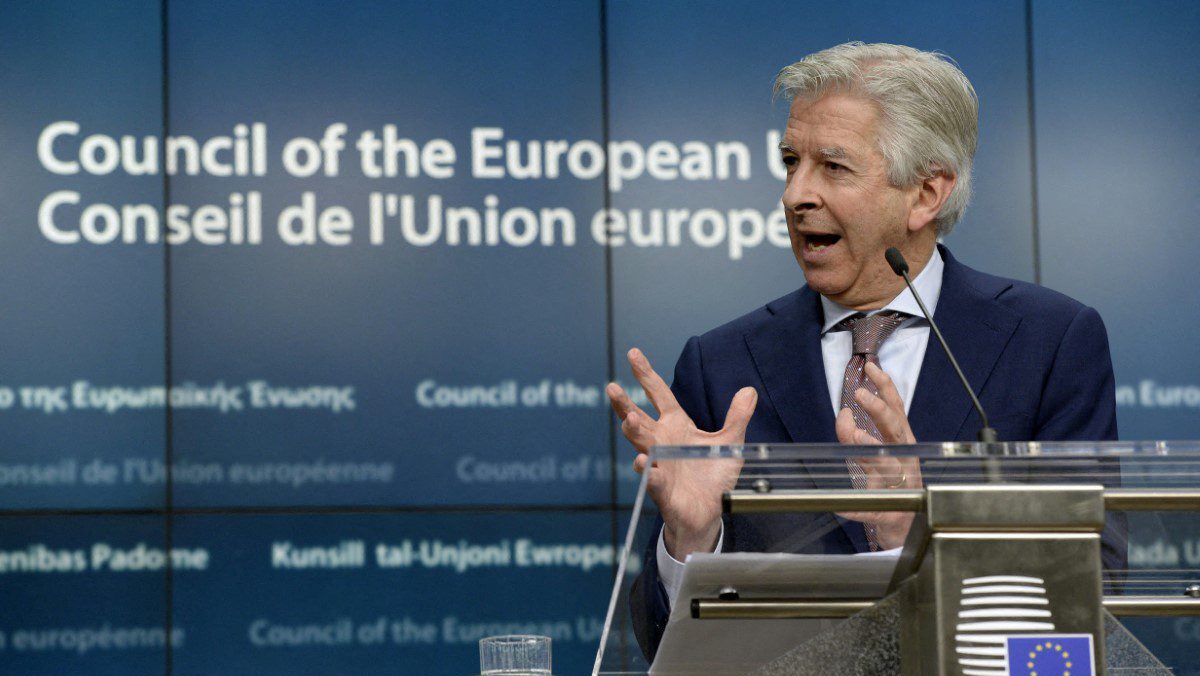
Former Dutch Interior Minister Ronald Plasterk.
Photo: THIERRY CHARLIER / AFP
Enthusiasm following last week’s successful coming together of Geert Wilders and his rightist coalition partners dampened somewhat on Monday, as Ronald Plasterk, slated to be nominated as the next Dutch Prime Minister by Wilders, announced he would pull his name for consideration.
An exposé by the Dutch daily NRC,—published in March and revived by critics after his name came up as a likely PM candidate—claimed Plasterk had appropriated research from an Amsterdam hospital in developing a cancer drug that he made millions from. No formal criminal investigation has been launched, but the Amsterdam hospital is still looking into the matter.
In a statement obtained by De Telegraaf, the former socialist Interior Minister (PvdA) said accusations leveled against him, while “untrue” and “futile,” would prevent him from properly executing the office.
Plasterk said despite having “complete integrity,” he would “no longer be available” for the job, but put faith in the fact that a new cabinet would soon be formed, which would have “good plans for the country.”
On X, Geert Wilders lamented the news. “I have a lot of respect for you Ronald. You don’t deserve this, but I understand your decision. As far as I’m concerned, you would have made an excellent PM.”
Ik heb heel veel respect voor je Ronald.
— Geert Wilders (@geertwilderspvv) May 20, 2024
Je verdient dit niet, maar ik begrijp je besluit.
Je zou wat mij betreft een uitstekende MP zijn geweest. https://t.co/6MG49j87IR
Leader of the Farmer’s Party (BBB) Caroline van der Plas said it was “very unfortunate” that Plasterk is withdrawing. “I wish Ronald strength and find it terrible that without trial or outcomes of investigations he has been damaged as a person for life.”
Ronald Plasterk trekt zich terug als kandidaat voor premierschap. Erg jammer! Ik wens Ronald sterkte en vind het verschrikkelijk dat hij zonder proces of uitkomsten van onderzoeken als persoon voor het leven is beschadigd. https://t.co/pEqp8bZ0x8
— Caroline van der Plas (@lientje1967) May 20, 2024
Following the stunning electoral triumph of Geert Wilders’ PVV last November, Plasterk was a key figure in moderating the coalition talks between Wilders’ PVV, the center-right VVD, the upstart NSC (New Social Contract), and the BBB, so that a rightist cabinet could be formed.
The allegations against Plasterk resurfaced when Wilders came to an agreement with his coalition partners last week, after which the search for a new cabinet—and new prime minister—could begin in earnest. It’s unclear whether the various actors amplifying the accusations are genuinely concerned about potentially destabilizing the rightist government or if their intention is to sabotage the coalition formation. While not a right-wing politician, Plasterk is viewed as a skilled communicator who could have provided a steady hand at the helm.
One of the first public figures to raise doubts about Plasterk’s candidacy was Johan Remkes, a veteran member of the VVD party, who last Sunday said on television program WNL op Zondag that he thought Plasterk should abstain.
Remkes advised Plasterk to “draw his conclusions,” since the integrity of the office of prime minister must be above reproach. “If strong reproaches are made, it does become very difficult [to keep a government together],” said Remkes, whose vast political experience garners him considerable authority in The Hague.
With Plasterk out of the picture, it is up to PVV leader Wilders, as the clear winner of the November elections, to name a new candidate.
On Tuesday the four coalition party leaders were scheduled to meet with Richard van Zwol—the formateur tasked with forming a new Dutch government—to come up with a new nominee for prime minister. Once this is done, other ministerial posts can be distributed among the four parties.
While several alternatives are floating around, none of the coalition parties have come out with any statement regarding a preferred candidate.
One name doing the rounds among the Right on social media, however, is that of Mona Keijzer, whose criticism of Islam and the Netherlands’ immigration policy earned her the Left’s condemnation.
Keijzer is a former Christian Democratic Appeal (CDA) politician who broke with her former party in August 2023 and is now an MP for the BBB. She served as State Secretary for Economic Affairs and Climate Policy alongside VVD leader Dilan Yesilgöz-Zegerius from October 2017 until September 2021.
Outgoing PM Mark Rutte removed Keijzer from his cabinet in 2021 after she criticized the use of QR-codes as proof of COVID vaccination for entry into some public spaces.
As a member of the CDA, she served in parliament between 2012 and 2017, and again for six months from March 2021 until September 2021.
Leader of the anti-globalist Forum voor Democratie (FvD) party Thierry Baudet however believes Wilders should “get the chance to do it himself,” given his party is by far the largest.
Nu @RPlasterk zich heeft teruggetrokken als premierskandidaat is het niet meer dan fair dat @geertwilderspvv alsnog de kans krijgt het zelf te doen. Het meest democratisch en een uitdrukking van de verkiezingsuitslag van 22 november, toen de PVV met afstand de grootste partij… pic.twitter.com/AxaAgn3a2H
— Thierry Baudet (@thierrybaudet) May 20, 2024
On X, he stated his party would file a motion on Wednesday for Wilders to be nominated after all. This is a most unlikely scenario, given that Wilders not becoming the new PM was an essential precondition for some of his partners to coalesce around a shared vision for the Netherlands in the first place.
